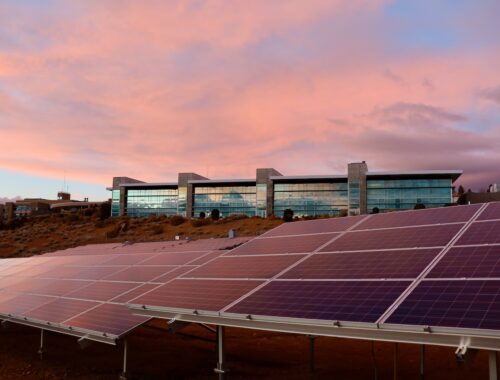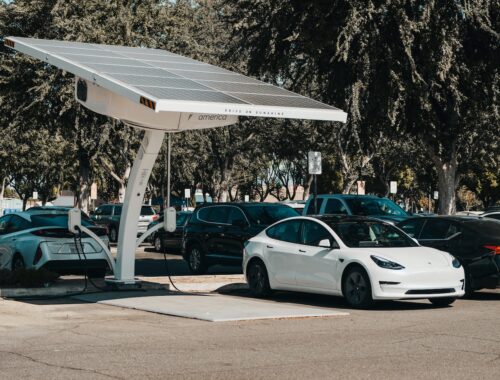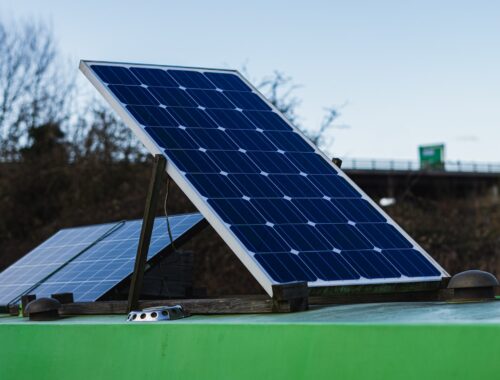What are the advantages of solar power?
Solar power is one of the fastest-growing sources of renewable energy in the world, providing a clean, sustainable, and cost-effective alternative to traditional energy sources like coal and natural gas. With the world facing an energy crisis and the need for clean, renewable energy sources becoming increasingly pressing, the advantages of solar power are more important than ever.
One of the main advantages of solar power is that it is a renewable energy source. Unlike fossil fuels, which are finite resources that will eventually run out, solar energy is constantly being replenished by the sun. This means that as long as the sun continues to shine, we will have access to unlimited amounts of solar energy. In addition, solar energy does not emit any harmful pollutants or greenhouse gases, making it a cleaner alternative to traditional energy sources.
Another advantage of solar power is that it is becoming increasingly cost-effective. In the past, the cost of solar panels and related equipment was prohibitively high, making it difficult for many people to adopt solar energy as a viable alternative to traditional energy sources. However, advances in technology and manufacturing processes have led to a significant decrease in the cost of solar panels, making it more accessible to a wider range of consumers. In addition, the cost of electricity generated by solar panels is becoming increasingly competitive with that of traditional energy sources, making it an attractive option for both homes and businesses.
Solar power is also reliable, as it does not rely on external factors like wind or water to generate energy. Instead, solar panels use photovoltaic (PV) technology to convert sunlight into electricity. This means that solar panels can be installed almost anywhere and do not rely on external factors to generate energy. This makes solar energy a reliable source of power, even in remote locations where traditional energy sources may not be available.
Another advantage of solar power is its versatility. Solar panels can be used to generate electricity for homes, businesses, and even vehicles. In addition, the energy generated by solar panels can be stored in batteries for use when the sun is not shining. This makes solar energy a flexible and versatile alternative to traditional energy sources, which may not be able to provide power in all conditions.
Solar power also provides a number of economic benefits. For example, the installation of solar panels can create jobs in the manufacturing, installation, and maintenance of solar equipment. In addition, the use of solar energy can help reduce dependence on foreign energy sources, strengthening national security and reducing the risk of price spikes and supply disruptions.
In addition to these benefits, solar power is also scalable, meaning it can be installed in homes, businesses, and even entire communities, providing power on a small or large scale depending on the needs of the customer. This scalability makes solar energy a flexible solution for a variety of energy needs, from powering a single home to providing energy for entire communities or even countries.
The technology behind solar energy is constantly improving, with advances in materials science, engineering, and manufacturing leading to the development of more efficient and cost-effective solar panels. This means that as technology continues to improve, the cost and efficiency of solar energy will continue to increase, making it an increasingly attractive option for consumers.
Solar power also has the potential to reduce energy poverty and improve access to electricity in developing countries. By providing a clean and sustainable source of energy, solar energy can help to improve the quality of life for people in these countries, as well as promoting economic development and reducing poverty.
Furthermore, it is worth mentioning that the adoption of solar power is growing rapidly around the world. As more people become aware of the benefits of solar energy, and as technology continues to improve, the use of solar energy is likely to become increasingly widespread. This is important, as it will help to drive down costs and make solar energy even more accessible and cost-effective in the future.
Another advantage of solar power is its low maintenance requirements. Unlike traditional energy sources like coal and natural gas, which require ongoing maintenance and repair, solar panels are relatively low-maintenance and can last for decades with proper care. This makes solar energy a more cost-effective and convenient option for many consumers.
The decentralization of solar energy is also a significant advantage. Solar panels can be installed and used locally, reducing the need for expensive and often unreliable transmission infrastructure. This decentralization can lead to greater energy independence, as well as a more resilient and secure energy system.
In addition to these advantages, solar power can also reduce dependence on fossil fuels and other non-renewable energy sources. This is particularly important in countries that import large amounts of energy, as it can reduce the risk of price spikes and supply disruptions. In addition, the use of solar energy can help reduce greenhouse gas emissions, contributing to a cleaner, healthier environment and mitigating the effects of climate change.
Also, solar power provides a number of social and environmental benefits. For example, it can improve access to electricity in remote and underserved communities, providing a source of power where it was previously unavailable. In addition, the use of solar energy can help reduce air and water pollution, improve public health, and promote economic development.
In conclusion, the advantages of solar power are numerous and varied, making it a more effective alternative to traditional energy sources. From its renewable nature and cost-effectiveness to its reliability, versatility, scalability, low maintenance requirements, decentralization, and social and environmental benefits, solar power is well-positioned to play a critical role in meeting the energy needs of the world for years to come. Whether for homes, businesses, or entire communities, the advantages of solar power make it an attractive and sustainable solution for a wide range of energy needs.
You May Also Like

Solar Power in Disaster Relief: Portable and Off-grid Solutions
October 16, 2023
Solar Power and Electric Vehicles: Synergies for Sustainable Transportation
July 21, 2023